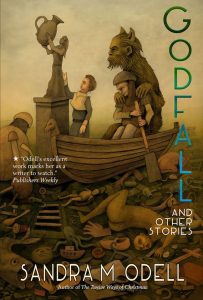Hello! Come on in! Don't mind the cobwebs. Would you like something to drink? Water, perhaps? No? That's fine. Anyway, welcome!
Not quite 25 years ago, I married the most wonderful person in the world who has walked beside me even when we were uncertain of the destination. September 9th will be our 25th anniversary and we would like to celebrate by taking a vacation. We haven't settled on a destination, but we are determined to celebrate our years together taking a moment to breathe. And with that. . .
Allow me to introduce Oddfellow Creations, fine and snarky cards of every sort! It seemed fitting to dust off my old website to celebrate my latest project. I wanted to add pictures of my wares, but my web fu is all but gone. However, you can see examples of my cards here.
Making cards is both occupational and psychological therapy for me. What started as an occasional hobby is now a necessary component of selfcare. If you follow me on Twitter, you've seen examples of my work and occasionally heard others talk about my cards. As I now have more cards than I do space to reasonably store them, I decided to use one solution for two problems. I am selling cards to raise money for my 25th anniversary and to free-up space for more cards. I love it when a plan comes together.
Each order is a grab bag of goodies depending on available stock and any stated preference: "Please, no Father's Day cards"; "All birthday cards"; "Only serious cards"; "Only blank cards"; "Young children birthday cards." Why a random selection? Because I don't make 50 of the same card at a time. This is my therapy, not factory. Some cards have a LGBTQIA+ focus or are designed with a particular faith in mind. If I could figure out how to have the cards translated into Braille, I would. (Hate is never a family value. Ever. If you can't accept that, then I neither want nor need your money.) I will add new designs to the pile when I can with pictures in the Facebook album to give a sense of the possibilities. I would apologize for not having a more organized approach to ordering, but, like the cards, I am anything but organized.
The cards are 1 for $4.00, 2 for $7.00, 3 for $11.00 and so on, payable via PayPal. All prices include shipping within the US; international orders will have additional shipping costs. You can contact me via Facebook, Twitter, or email at smodell1995@yahoo.com with your mailing address and any card preferences. I'll let you know the total, and once payment has been received the cards will be on their way to you.
All of this is to say if you enjoy handmade sentiments and want to indulge your sense of wonder and whimsy, these are the cards for you.



